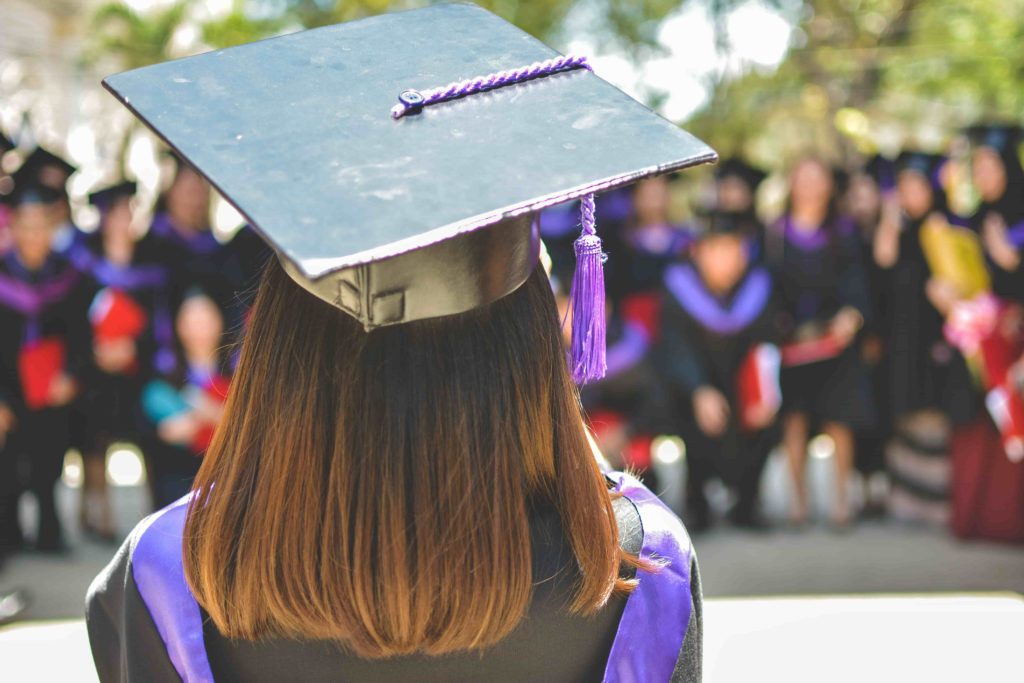By Michele Waslin, PhD, and Kevin Nazar
Institute for Immigration Research, a joint venture between George Mason University and The Immigrant Learning Center

The world’s top scientists tend to be highly mobile. They frequently cross borders to study, work, collaborate and present their research. The U.S. attracts science, technology, engineering and math (STEM) scholars and students from around the world. Notably, dozens of Nobel laureates from the U.S. were immigrants or foreigners working with U.S. universities. Unfortunately, changes to U.S. immigration policies are making it more difficult for these highly skilled individuals to study and work in the U.S. raising the question: Is the U.S. closing its doors to future Nobel Prize winners?
In the last decade, the share of international students earning master’s degrees in science and engineering has risen from 26 percent to 35 percent. In 2016, international PhD graduates in Engineering, Mathematics and Computer Sciences outnumbered U.S. citizen and lawful permanent resident graduates. Currently, many of those newly minted STEM graduates remain in the U.S. to work. Many of those graduating this season will stay for up to three years through a specialized visa extension program called Optional Practical Training (OPT). OPT is becoming increasingly difficult to get, and there are few other options for international STEM graduates to remain in the U.S., even though scientific innovation relies in part on foreign-born talent.
Our own research has found that more than one-third of total U.S. Nobel laureates were immigrants. In 2018, three of the foreign-born winners were associated with U.S. universities and research centers during their careers. French-born Nobel Laureate Gerard Mourou became a professor at the University of Rochester in 1977, where he and his student, Canadian-born Donna Strickland, produced their Nobel prize-winning work on high-intensity, ultra-short optical pulses. Mourou went on to found the Center for Ultrafast Optical Science at the University of Michigan in 1990. Japanese-born immunologist and Laureate Tasuku Honjo worked at the Carnegie Institution of Washington and at the National Institutes of Health.
What about potential future Nobel Prize winners? Foreign-born PhD holders make up 52 percent of all U.S. workers in Nobel-Prize-related occupations in physics, chemistry, medicine and economics. In some fields, the numbers are even more disproportionate: 72 percent of petroleum engineers and 60 percent of biomedical engineers with PhDs working in the U.S. are foreign-born. However, recent changes to immigration policies threaten to negatively impact foreign scholars’ ability to study, work and conduct research in the United States. Visa and green card applications are experiencing processing delays, and employers have a more difficult time recruiting top job applicants. Foreign-born graduates of U.S. universities today have a more difficult path toward employment. The 2017 travel ban severely restricts nationals from several countries from coming to the U.S. at all. It appears the U.S. is still not receptive to foreign innovators. Highly-skilled immigrants worry about whether their spouses will be able to get work authorization.
We’re starting to see the impact. The number of new international student enrollments in graduate, undergraduate and non-degree programs in U.S. colleges and universities has decreased for a third year in a row. According to data from the Institute for International Education’s Open Doors report, between the 2016/2017 and 2017/2018 academic years, there was a 6.6 percent decline in new international student enrollments, which was double the decline in the previous academic year.
As the U.S. becomes a less welcoming, less desirable destination for highly skilled and highly motivated foreign nationals seeking an ideal location to receive an education and conduct their research, other countries are waiting to recruit these workers. We live in a global marketplace where multiple countries compete for the best and brightest students and researchers, and the next Nobel Laureates might decide to take their talents elsewhere. The results would be devastating for the future of U.S. innovation and technology.
